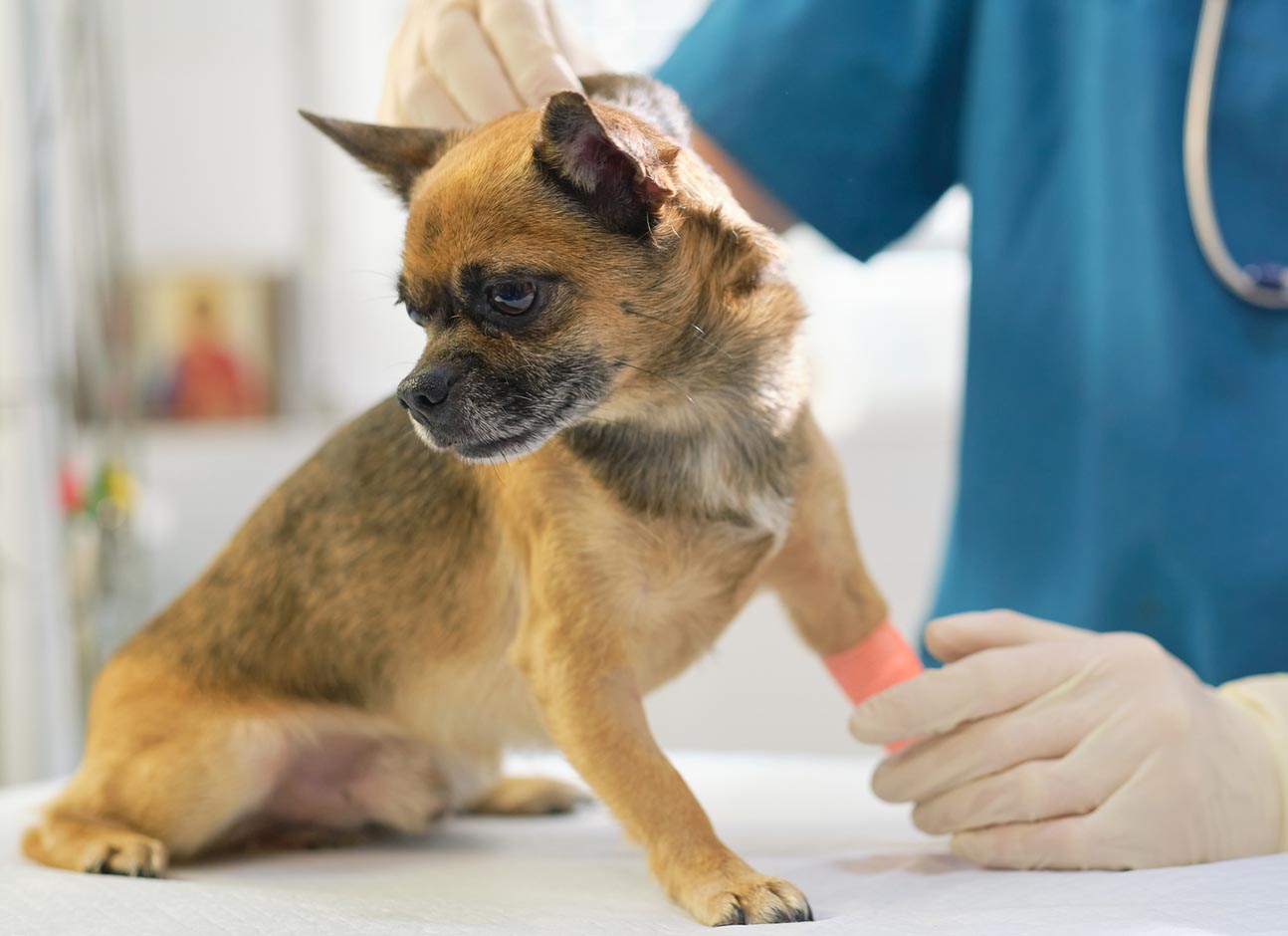Dog owners often become alarmed when they discover a subcutaneous bump or growth. However, most of these can be easily treated, and the key is to determine the cause of the lump.
Causes of Lumps:
Infiltrate from insect bites
Abscess due to bacterial infection in a skin injury
Viral infection
Trauma
Cysts from clogged sebaceous glands
Cancer (Oncology)
Symptoms:
In most cases, lumps don’t cause any symptoms and are noticed by owners only through touch or, in the case of a large lump or short-haired dog, visually. If the lump causes discomfort, pain, or pus discharge, or if new lumps appear, contact a veterinary clinic immediately. Consult a veterinarian if there’s redness or swelling, or if the lump is near a gland, paw, or muzzle.
Common Types of Lumps in Dogs:
Lipoma: A benign connective tissue growth, commonly found in middle-aged or older dogs, especially larger breeds or those with obesity. Lipomas often appear in the rib area but can occur anywhere on the body.
Atheroma: A blocked sebaceous gland that looks like a pimple and contains a light paste-like substance when popped.
Warts: Caused by viruses, often located around the mouth. Young dogs usually recover on their own, while older dogs may need surgery to remove warts.
Abscess: Caused by subcutaneous pus accumulation due to infections, bites, or skin injuries.
Mast cell tumor: The most common skin cancer in dogs, affecting breeds such as Boxers, Boston Terriers, Labradors, Beagles, and Schnauzers.
Soft tissue sarcoma: A hard or semi-hard lump deep under the skin or within muscles, appearing in middle-aged dogs on the chest, belly, or paws.
Basal cell carcinoma: A skin tumor that develops from primary cells, located in the mouth, on the skin, or near the claws in dogs aged eight to ten years.
Benign Tumors:
Benign lumps don’t grow or metastasize and are generally not dangerous. In many cases, they disappear on their own. If there’s no pain, pus, redness, or growth, you can observe the lump for a few days before consulting a veterinarian.
Malignant Tumors:
Malignant tumors affect the entire body, metastasize, and can cause bleeding. Symptoms of cancer in dogs are similar to those in humans, including enlarged lymph nodes, bloody and pus-filled lumps, and bone growth.
Other Types of Lumps:
Histiocytoma: Red bumps resembling buttons, often formed on the paws, caused by an overgrowth of cells that protect the dog’s skin. Consult a veterinarian due to their similarity to cancer.
Perianal adenoma: Slow-growing tumors around the anus, primarily found in non-neutered males. The surface is susceptible to infection.
Skin tags: Fibrous bumps common in older, large dogs, and not dangerous.
Urticaria: Dermatitis similar to humans, caused by an allergic reaction, resulting in reddened bumps or protruding round patches with itching. Mild cases resolve on their own, while a veterinarian may prescribe steroids or antihistamines for relief.
Veterinary Diagnosis:
The veterinarian will first gather information from the owner, such as:
Was the lump’s appearance sudden?
Has the shape, color, or size changed?
Are there any associated symptoms?
Tissue samples from the lump will be taken and examined under a microscope to confirm if it is a benign growth or if further tests, such as a biopsy, biochemistry, or ultrasound, are needed.
Treatment Methods:
For benign, non-disturbing growths, they are often left alone. However, some owners may choose to have them removed if they affect the pet’s appearance. Abscesses are typically drained and treated with ointments.
In cases of cancer, treatment options include surgical removal, chemotherapy, and radiation therapy. The key is that malignant tumors can often be cured, especially if detected and treated in the early stages.
